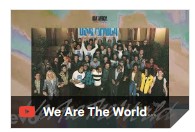Powerful Mind Part 42

Welcome to this week’s Bill Harvey Blog. January 2, 2026
Created December 8, 2023.
Read Powerful Mind 41 | See all 12 Powerful Mind Keys

In the 1970s, I coined the term “Noia” as the opposite of paranoia when I discovered that the prefix “para” derives from the Greek meaning of “beside”. What is beside paranoia, I asked myself. Paranoia is the unhealthy fear that someone/everyone is out to get you. I decided that “noia” then might be the healthy suspicion that someone is out to help you.
The reason I was thinking this way is that by the 1970s, I had noticed that often information was coming to me seemingly by accident that was unusually relevant to my current life situation at the time. I would be trying to solve some problem, for example, and since I almost always have music on, a line in a song would come along at just the right moment to bear an uncanny resemblance to my line of thought.
This can be easily explained as random coincidence aided by priming effect and being observant. Priming effect is the increase in saliency of a stimulus to a person caused by a prior stimulus.
However, it did not seem like random coincidence to me because it occurred too often. It seemed more like someone who could read my thoughts and feelings was trying to help me reach my goals. Since my goals have always been to leave the world a better place than I found it, perhaps the universe is trying to help me because I am trying to help the universe, I thought.
Looking back at my life through that lens as a way of further studying the phenomenon, it appeared that I had been given the most open-minded and compassionate parents possible, and gifted with an independence of thought, and lucky in so many ways. I also saw that my love of science had blinded me to consider that there might be a germ of truth in religion and/or in other superstitious behaviors, as I thought of magic, reincarnation, and so many other things.
Having the label of “noia” to slap on things was useful to me in prying open my mind to pay closer attention and not to filter or bias what I perceived by having strong preconceived notions. I started to notice how frequently each day I experienced noiac events.
That led to my noticing what I noticed, and asking myself, “Why did I notice that?” In the bulk of cases, this unearthed insights helpful to me in whatever I was doing during that period of my life. It was as if another entity with my interests at heart was causing me to notice things that contained or stimulated pathways of thought that would take me to places I needed to go.
You might say that this helpful entity was my own subconscious. But then, what was my subconscious? Could it be the part of my consciousness that is common to all of us and all things? Jung had thoughts like these and also had many other notions that had been of significant utilitarian value to me, so maybe there was something in it. In the 70s I became aware that my affection for science had gone too far, and I was myself being unscientific by ruling things out prematurely, and that I ought to go back to the roots of empiricism rather than stay in the current herd culture of scientism which allows scientists to carve out a large chunk of human experience as being superstition without conclusive proof supporting that negation position.
The next step after open-mindedness in this expanded empirical outlook is the control of attention.
In the Acceleritis-dominated culture we live in, taking control of your own attention is one of the hardest possible things to do. There are all of these distractions taking you away from moment to moment. Unfortunately, this environment captures young people from the get-go. They have almost no chance to escape it because it hits them very early on. It’s the ocean around the fish which the fish takes for granted. As if life could not even exist without perpetual distraction.
Young people in the age of smartphones build their lives around this device, and no age group is immune to its hypnotic power. Before June 2007, it was the television set that took us away, and now the norm is to have both devices on at all possible times.
Nevertheless, each and every one of us has the potential to retake our castle. Concentration, meditation, and contemplation are the training grounds that build a controllable attention. Twenty minutes a day of practicing these three things can become a 24/7 lifestyle that is far more beneficial than we expect it to be.
One experiment that is worth doing over and over again in the daily alone space – and in other opportune moments – is to get away from devices (soft music without lyrics in the background is fine), put your body in a comfortable position that it can remain in for a long time without discomfort, close your eyes, and simply pay all of your attention to what is transpiring in your mind.
As you get better at this, you will see that you are gaining the ability to watch the arising of a thought or feeling. Focus your attention on being able to see a thought or feeling or other qualia (subjective experience), such as an image, or even a momentary smell, any experience that occurs in your psyche.
Separate the part of you that is the pure experiencer from the part of you that is expressing itself in displaying that thought or feeling to you. If you like baseball, you might picture these two aspects of yourself as the pitcher and the batter.
Sometimes you will experience qualia that teach you something that you are grateful to learn, and you fear you might forget. It’s good to have something to write with and write on right next to you so you can put down one or a few words that will help you recapture the sense of the message. Best to use the exact words that triggered your sense of valuable information.
Often, the pitcher will be your ego pitching something at you that is negative, tied to an attachment of yours, and that matches your notion of Emergency Oversimplification Procedure (EOP), the reductionistic state into which people are forced by Acceleritis. This ego is a biological AI whipping up a compote of memories and tossing them at you in a fastball.
Under normal conditions, you might swing and miss, but with your eyes closed and in a meditative space, it will be easier to observe these qualia dispassionately without being caught up in it the way you would normally be taken over by it.
The more you play ball with your robot (ego bio-AI), the more you will notice about its behaviors. You will begin to sense that the robot contains many different programs that I have previously referred to as “senators”. These are all points of view you have experienced, mostly coming from other people you have met, watched, or listened to on devices.
The game is made more difficult by the fact that sometimes the robot is right. Sometimes, the oversimplified lesson extracted from prior experience is accurately predictive. You sense your own immediate aversion to a person who has not yet done anything counter to you – you suspect it might be because they remind you of someone who has done you dirty in the past – and it turns out that this person is actually trying to take advantage of you. You wonder whether it was the robot who gave you the good inner advice or if the Noia was the benefactor who gave you that precognitive hunch. It could be either. The robot is not always wrong in the net advice it is giving you, but it’s undependable and it tends toward negativity and extremism. Both negativity and extremism are life poisons. They aren’t helpful. Discriminating among your mental and emotional arisings is the only game in town and it can be won against all odds.
Increasing internal visibility is an important aspect of Key #11. More in Powerful Mind Part 43.
See all 12 Powerful Mind Keys
My best to all,
![]()






